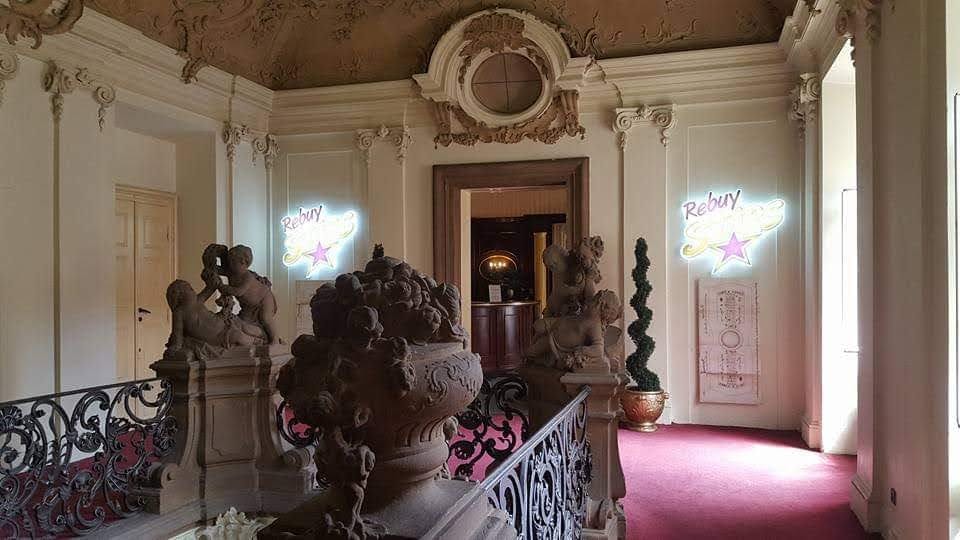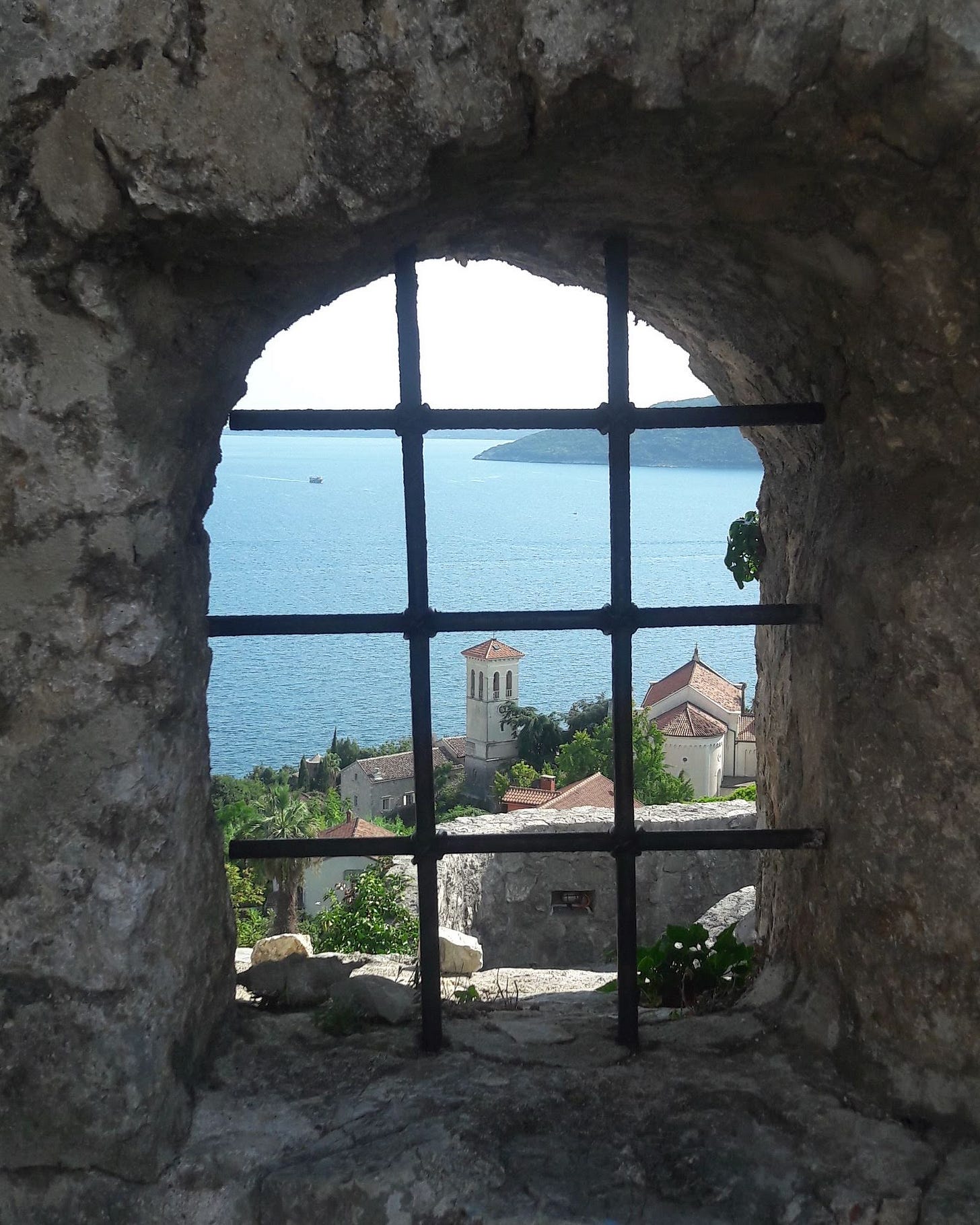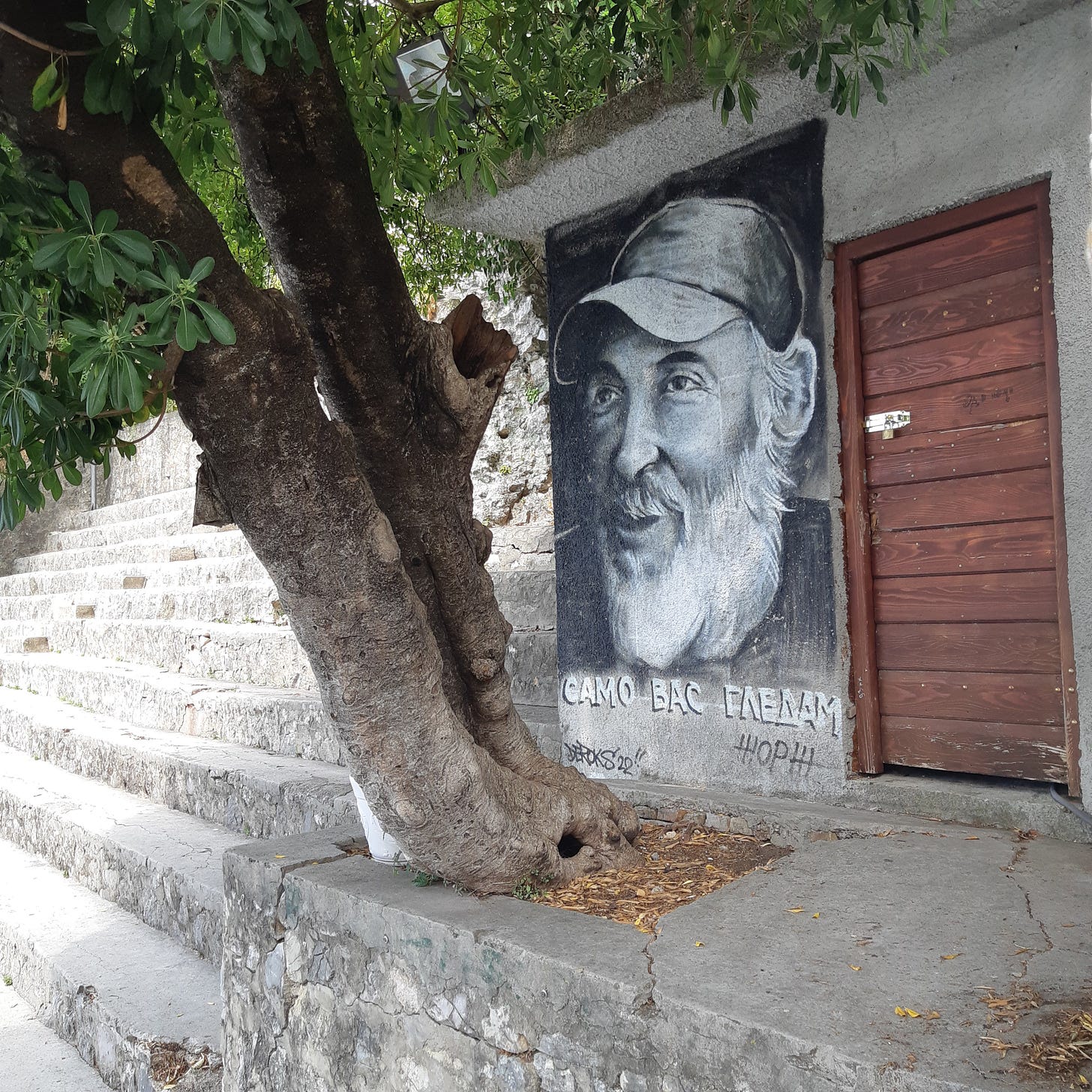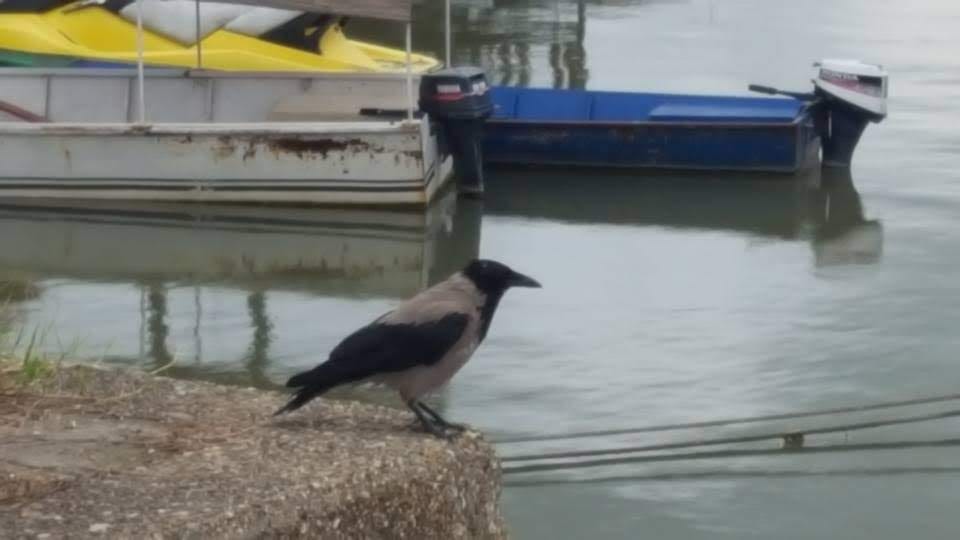Westerners may often think of the Middle and Far East—lands once characterized as The Orient—as exotic. Alain de Botton recognized his personal version of exotic in a bilingual sign in Amsterdam’s Schiphol Airport. He found its modern, seraph-free font a refreshing contrast to his home country’s attachment to antiquated embellishment. In his book, The Art of Travel, he suggests, “What we find exotic abroad may be what we hunger for in vain at home.”
My personal orientation of the exotic is situated in the lands behind the former Iron Curtain. In the way some kids obsess over dinosaurs, I obsessed as a kid over World War II Europe and its geopolitical fallout. (Let’s unpack the reasons for that some other time.)
The Berlin Wall opened up in 1989, weeks before my 19th birthday. Ten years later, I was in the crowd at the Brandenburg Gate in Berlin when the Scorpions played with the Berliner Philharmoniker. In 2021, I listened to the Wind of Change podcast, in which an American journalist interrogated Klaus Meine to find out whether that iconic anthem had been written by CIA operatives in an effort to bring the Cold War to a gentle end.
My era of pop music was sprinkled with lyrics that attempted to span the East-West divide as we knew it in the 1980s. Sting was hoping the Russians love their children, too. My best friend, Carol, and I were so obsessed with Nena’s 99 Luftballons we called the Top Ten at Ten enough times in one night to push it back onto the list of the day’s top requests. I even faked a German accent on one call.1
Was there something behind the Iron Curtain that I couldn’t find at home, something like de Botton’s Amsterdam airport sign?
Before travel was possible for me, I would try to view my hometown through the eyes of a visitor. I didn’t have the means for airfare and hotel in Prague, I thought, but I could at least reorient my gaze towards my immediate surroundings. My travel experience emerged through the shifting of seasons, the landscape’s changes of colour, the climate’s shifting moods. I also enjoyed playing host to my travelling friends—one ridiculous week, I had 8 houseguests from three different countries stay with me in my one-bedroom apartment. “If the mountain can’t come to Mohammed,” as some people somewhere like to say.
I have a curiosity about places that used to be datelines on international news stories: “Joe Schlesinger, CBC News, Berlin,” for example. Or Nicosia. Or Belgrade. These cities used to be out of reach to me. I’ve read the writings of Solzhenitsyn, some of which he wrote while a prisoner of the state. I’ve read cleverly subversive Czech writers like Skvorecky and Klima, stories of resistance and heroism and escape. In Hollywood, White Nights gave us Gregory Hines and Mikhail Baryshnikov dancing us to the end of totalitarianism.


My first time in Montenegro was 2018. I knew I was bringing some trumped-up perceptions of the Balkans. (Speaking of, I arrived there a month after someone described Montenegro as “very aggressive.”) My awareness of the country was fed by traces of news stories from the 1990s, books written by academics attempting to explain the region’s complicated history, and recommendations from nice ladies at a wedding I attended in Serbia a couple years earlier. My first day in town, I walked past a basketball court with a mural of a bearded man in a field cap. I thought it was Fidel Castro. They do like their communists, I thought.
My third time in Montenegro was 2022. Now I had a local friend, Jadranka. We’d see each other at the beach and converse via Google Translate. I showed her a picture of “Fidel” and asked her about the mural. She explained it was a man who liked to watch the kids playing. After he died, folks had the mural painted in his memory. Like any good Cuban revolutionary, he’d owned the taverna next to the basketball court.
I think we Newfoundlanders often like to see ourselves as a quirky other in the context of our known western world. We relish our accents and folklore. Our songs and stories tell of hard, hard times, of sailing out through the bay with their houses in tow. Our own version of a complicated history includes a period when we were our own country with our own national anthem. Getting off the island, especially in winter (and especially since Westjet has hauled out), often feels like an escape of heroic proportions.
What’s the thing I find in those easterly regions of Europe that, to borrow de Botton’s phrase, I’ve hungered for vainly at home? Paradoxically, I think those places I once thought of as oppressed give me a sense of freedom. In a town where folks my age are more likely to speak a little German or Russian than any English at all, finding a person who’ll take time to communicate with a translation app broadens my confidence in people’s preference for connection over division. Places once off-limits but now accessible expand my hope in history’s ability to—at least sometimes—bust through walls rather than build them up.
“Distant memories are blowing in the past forever,” as Klaus Meine wrote. “The world is closing in, and did you ever think that we could be so close?” I mean, maybe the CIA wrote it.2
I’ve encountered enough women of a certain age named Nikita that I’m sure I’m not the only person moved by Elton John’s ode to a woman with a Russian name working at an East German border checkpoint. (Have you watched that video lately? The fez hat he’s wearing in one scene is next-level exotic.)
An AI lyrics generator couldn’t have done any better.








Lynette, this piece makes me think again about where we live and how we regard it. I’ve always felt that Newfoundland is exotic but perhaps because I’d only lived in the midwest until I arrived here. Is it the comparison that makes Newfoundland exotic for me? Or is it inherently exotic? It continues to be fascinating and mysterious to me after living here for 53 years.